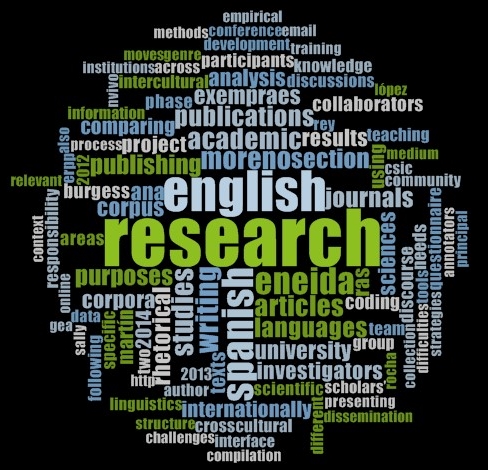The ENEIDA PROJECT

Based on insights from Spanish-English cross-cultural studies of academic discourse, the ENEIDA project aims to identify and explain the most difficult writing problems of Spanish researchers when addressing an international audience (intercultural perspective) —termed Writing Obstacles in English (WOEs) (Moreno et al., 2012). This explanation draws on the contrastive rhetoric hypothesis (Kaplan, 2001), which posits that writers from different cultural and language backgrounds have distinct preferences for articulating messages with similar purposes (cross-cultural perspective). Some of these rhetorical preferences may unconsciously transfer to writing in English, causing ineffective rhetorical effects with negative consequences for Spanish writers, such as the extra need to revise their manuscripts before publication.
The project claims that, by raising Spanish researchers’ awareness of cross-cultural differences in ERPP writing, particularly regarding audience types (national/local versus international), it is possible to help them produce more successful texts for English-medium journal gatekeepers.
Given the ambitious nature of the ENEIDA project, the ENEIDA Team (I), a multidisciplinary team of twelve researchers, was brought together to lay the groundwork for future research. Their first competitive research proposal, titled “Rhetorical Strategies to Get Published in International Journals from a Spanish-English Intercultural Perspective (I),” secured considerable funding from the Ministerio de Ciencia e Innovación as part of the National Plan for Research, Development and Innovation (Ref.: FFI2009-08336/FILO, 2010-2014). It is anticipated that subsequent funded projects will continue to build on the foundation they lay, potentially involving both members of the initial team and new researchers.
